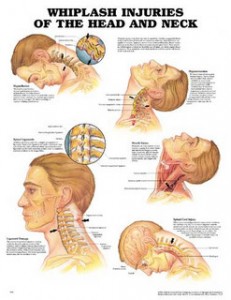One of the reasons why car insurance premiums have gone up in the last couple of years or so is due to the amount being paid out in respect of whiplash claims. If a motorist submits a legitimate claim then that is obviously perfectly fine. However, there are a large number of fraudulent whiplash claims being made by car insurance policyholders.
It is interesting that Aviva has felt it necessary to decline 9.5% more fraudulent claims in 2016 than it did in the previous year in respect of liability, household and bodily injury involving motor vehicles.
It is fraudulent claims made in respect of bodily injuries that were the major type of fraudulent claim with 59% of the total number of fraudulent claims dealt with by Aviva relating to that type of claim. In 2016, Aviva saw a 4.8% rise in such claims which you will no doubt agree is a concerning increase. You will also no doubt be interested to read that in 2016 Aviva declined 10% of whiplash claims as the insurer felt that they were actually proven to be fraud or were suspected of being fraudulent.
Fraudulent whiplash claims involving road traffic accidents are obviously concerning to insurance companies and they will no doubt do all that they can to identify such cases. They will not hesitate to take dishonest claimants to court. In fact, last year, Aviva were successful in getting 154 whiplash claims declared by the courts to be “fundamentally dishonest”.
No doubt insurers will quite rightly continue to take a firm line with fraudulent insurance claims. Let us hope that, in due course, they feel that they are able to reduce car insurance premiums if they are able to spot and stop a larger number of fraudulent whiplash injury claims. We will continue to provide our readers with updates periodically about such fraudulent claims.




